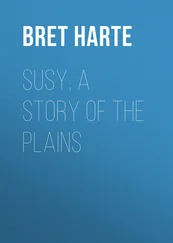Emmuska Orczy - A Bride of the Plains
Здесь есть возможность читать онлайн «Emmuska Orczy - A Bride of the Plains» — ознакомительный отрывок электронной книги совершенно бесплатно, а после прочтения отрывка купить полную версию. В некоторых случаях можно слушать аудио, скачать через торрент в формате fb2 и присутствует краткое содержание. Жанр: foreign_prose, foreign_language, на английском языке. Описание произведения, (предисловие) а так же отзывы посетителей доступны на портале библиотеки ЛибКат.
- Название:A Bride of the Plains
- Автор:
- Жанр:
- Год:неизвестен
- ISBN:нет данных
- Рейтинг книги:4 / 5. Голосов: 1
-
Избранное:Добавить в избранное
- Отзывы:
-
Ваша оценка:
- 80
- 1
- 2
- 3
- 4
- 5
A Bride of the Plains: краткое содержание, описание и аннотация
Предлагаем к чтению аннотацию, описание, краткое содержание или предисловие (зависит от того, что написал сам автор книги «A Bride of the Plains»). Если вы не нашли необходимую информацию о книге — напишите в комментариях, мы постараемся отыскать её.
A Bride of the Plains — читать онлайн ознакомительный отрывок
Ниже представлен текст книги, разбитый по страницам. Система сохранения места последней прочитанной страницы, позволяет с удобством читать онлайн бесплатно книгу «A Bride of the Plains», без необходимости каждый раз заново искать на чём Вы остановились. Поставьте закладку, и сможете в любой момент перейти на страницу, на которой закончили чтение.
Интервал:
Закладка:
Orczy Emmuska Orczy, Baroness
A Bride of the Plains
CHAPTER I
It was now close on eight o'clock and more than two hours ago since first the dawn broke over that low-lying horizon line which seems so far away, and tinged the vast immensity of the plain first with grey and then with mauve and pale-toned emerald, with rose and carmine and crimson and blood-red, until the sun – triumphant and glorious at last – woke the sunflowers from their sleep, gilded every tiny blade of grass and every sprig of rosemary, and caused every head of stately maize to quiver with delight at the warmth of his kiss.
The plain stretched its limitless expanse as far as human eye can reach – a sea of tall straight stems, with waves of brilliant green and plume-crowned crests shimmering like foam in the sunlight.
As far as human eye can see! – and further, much further still! – the sea of maize, countless upright stems, hundreds of thousands of emerald green sheaths crowned with flaxen tendrils like a maiden's hair; down on the ground – a carpet for the feet of the majestic corn – hundreds and thousands of orange-coloured pumpkins turning their huge shiny carcases to the ripening rays of the sun, and all around in fantastic lines, rows of tall sunflowers, a blaze of amber, with thick velvety hearts laden with seed.
And all of it stretching out apparently to infinity beyond that horizon line which is still hidden by a silvery haze, impalpable womb that cradles the life-giving heat.
Stately stems of maize – countless as the pebbles on a beach, as the specks of foam upon the crest of a wave, limitless as the sea and like the sea mutable, ever-changing, restless – bending to every breath of the summer breeze, full of strange, sweet sounds, of moanings and of sighs, as the emerald sheaths tremble in the wind, or down below the bright yellow carcases of the pumpkins crack and shiver in the growing heat.
An ocean of tall maize and gaily-coloured pumpkins as far as the eye can reach, and long, dividing lines of amber-coloured sunflowers, vivid and riotous, flaunting their crude colouring in the glowing sunlight.
Here and there the dull, dark green of hemp breaks the unvarying stretches of maize, and far away there is a tanya (cottage) with a group of stunted acacias near it, and a well whose tall, gaunt arm stretches weirdly up to the sky, whilst to the south the sluggish Maros winds its slow course lazily toward the parent stream.
An ocean of maize and of pumpkins and of sunflowers, with here and there the tall, crested stems of hemp, and above it the sky – blue and already glowing through the filmy mist which every minute grows more ethereal and more impalpable as veil upon veil of heat-holding vapours are drawn from before its face.
A beautiful morning in mid-September, and yet in all this vast immensity of fertile land and ripening fruit there is no sign of human toil, no sound of beast or creaking waggon, no sign of human life around that distant tanya.
The tiny lizard in his comfortable position on the summit of a gigantic pumpkin can continue his matutinal sleep in peace; the stork can continue undisturbed his preparations for his impending long voyage over seas. Man has not yet thought to break by travail or by song the peaceful silence of the plain.
And yet the village lies not very far away, close to the Maros; the small, low, hemp-thatched houses scarcely peep above the sea of tall-stemmed maize, only the white-washed tower of the church with its red-painted roof stands out clear and abrupt against the sky.
And now the sharp, cracked sound of the Elevation bell breaks the silence of the summer's morning. The good Pater Bonifácius is saying Mass; he, at any rate, is astir and busy with his day's work and obligations. Surely it is strange that at so late an hour in mid-September, with the maize waiting to be gathered in, the population of Marosfalva should still be absent from the fields.
Hej! But stranger, what would you! Such a day is this fourteenth of September.
What? You did not know it? The fourteenth of September, the ugliest, blackest, most God-forsaken day in the whole year!
You did not know? You cannot guess? Then what kind of a stranger are you if you do not know that on this hideous fourteenth of September all the finest lads of Marosfalva and the villages around are taken away by the abominable government? Away for three years to be made into soldiers, to drill and to march, to carry guns and bayonets, to obey words of command that they don't understand, to be packed off from place to place – from Arad to Bistricz, from Kecskemét to Nagyvárad, aye? and as far as Bosnia too – wherever that may be!
Yes, kind Sir! the lads of Marosfalva and of Fekete, of Kender and of Görcz, are taken away just like that, in batches every year, packed into one of those detestable railways like so many heads of cattle and separated from their mothers, their sisters, their sweethearts, all because a hateful government for which the people of Marosfalva do not care one brass fillér, has so decreed it.
Mind you, it is the same in all the other villages, and in every town in Hungary – so at least we have been given to understand – but we have nothing to do with other villages or with the towns: they do just as the good God wills them to do. It is our lads – the lads of Marosfalva and Kender and Fekete and Görcz – who have to be packed off in train-loads to-day and taken away from us for three years.
Three years! Why, the lad is a mere child when he goes – one-and-twenty on his last birthday, bless him! – still wanting a mother's care of his stomach and his clothes, and a father's heavy stick across his back from time to time to keep him from drink and too much love-making.
Three years! When he comes back he is a man, has notions of his own, has seen the world and cares no more about his native village and the narrow cottage where he used to run in and out bare-footed, bare-chested, bare-headed and comfortably dirty from head to foot.
Three years! And what are the chances that he come back at all? Bosnia? Where in the world is that? And if you are a soldier, why then you go to war, you get shot at, killed may be, or at any rate maimed. Three years! You may never come back! And when you do you are not the same youngster whom your mother kissed, your father whacked, and your sweetheart wept over.
Three years! Nay, but 'tis a lifetime. Mother is old, she may never see her son again. Girls are vain and fickle, they will turn their thoughts in other directions – there are the men who have done their military service, who have paid their toll to the abominable government up at Budapest and who are therefore free to court and free to marry.
Aye! Aye! That's how it is. They must go through with it, though they hate it all – every moment of it. They hate to be packed into railway carriages like so many dried heads of maize in a barn, they hate to wear the heavy cloth clothes, the hard boots, the leather pouches and belts. My God, how they hate it!
And the rude alien sergeant, with his "Vorwärts!" and "Marsch!" and "Rechts" and "Links" – I ask you in the name of the Holy Virgin what kind of gibberish is that?
But they must all go! – all those, at least, who are whole and sound in body. Bless them! They are sound enough when they go! It is when they come back!.
Yes! They must all go, those who are sound in eyes and wind and limb, and it is very difficult to cheat the commission who come to take our lads away. There was Benkó, for instance; he starved himself for three months this summer, hoping to reduce his chest measurements by a few needful centimètres; but it was no use. The doctor who examined him said that with regular food and plenty of exercise he would soon put on more flesh, and he would get both for the next three years. And János – you remember? – he chopped off one of his toes – thinking that would get him off those hated three years of service; but it seems there is a new decree by which the lads need not be possessed of all ten toes in order to serve the hateful government.
Читать дальшеИнтервал:
Закладка:
Похожие книги на «A Bride of the Plains»
Представляем Вашему вниманию похожие книги на «A Bride of the Plains» списком для выбора. Мы отобрали схожую по названию и смыслу литературу в надежде предоставить читателям больше вариантов отыскать новые, интересные, ещё непрочитанные произведения.
Обсуждение, отзывы о книге «A Bride of the Plains» и просто собственные мнения читателей. Оставьте ваши комментарии, напишите, что Вы думаете о произведении, его смысле или главных героях. Укажите что конкретно понравилось, а что нет, и почему Вы так считаете.












